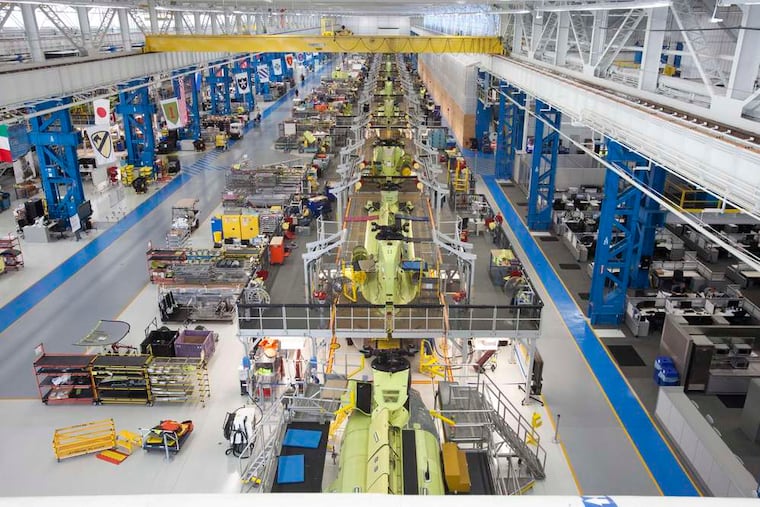Boeing’s Ridley Park plant receives $265M contract from Pentagon for 9 Chinook helicopters
While these nine helicopters on this contract are for the Army Special Operations, “the really big prize" for the Ridley Park plant "is to build a similar version of that helicopter for the Army because the Army would need hundreds of them,” said one analyst.

A new $265 million contract between the Pentagon and Boeing could spell more future sales for the Ridley Park plant.
On Friday, Boeing announced that the funding would be used to build nine more of its MH-47G Block II Chinook helicopters for the U.S. Army Special Operations Aviation Command. This is the third contract of its type in three years that Boeing has received for the plant, which employs more than 4,600 workers. The other contracts, one in 2018 and another in 2019, each funded the building of four such Chinook helicopters.
Andrew Africk, a spokesperson for Boeing, said this contract won’t add workers in Ridley Park, but it will support one of the plant’s most important products. “The Chinook factory has two main production lines, and they’re used to build Chinooks for all of our global customers,” he noted.
Boeing is one of the largest defense contractors in the world, and Africk pointed out that the Ridley Park site supports “a very robust” portfolio of helicopters that are used by or on order with 20 defense forces around the world, including those of nations such as Canada, the U.K., and Australia.
He also said that the program of record — or the number of products that a military customer has purchased or has in operation — is 69 Chinooks for Army Special Operations. Boeing’s Ridley Park plant, he said, is now on contract for 24 of the new Chinooks.
The increase in production numbers on this most recent contract could mean that the company is preparing to ramp up manufacturing for these new models, said Loren Thompson, a military analyst and chief operating officer at the Lexington Institute, a think tank in Arlington, Va.
He noted that although the nine helicopters on this contract are for Army Special Operations, “the really big prize is to build a similar version of that helicopter for the Army because the Army would need hundreds of them.” Entering this contract “improves Boeing’s chances of making a much bigger sale to the U.S. Army.”
Thompson suggested there’s a big motivation for the Army to upgrade its Chinooks, largely because current models are limited in what they can carry. The ones that Boeing will be building for the Army Special Operations under this contract “give the helicopter a lot more lifting capability than the ones that are in the Army fleet today.”
More specifically, Thompson said that a future stream of funding from the government to build more Chinooks will help sustain the factory for years to come.
But if Boeing doesn’t get that next deal, the consequences could be dire. “The Chinook and the [Osprey] V-22 are the two main aircrafts they build there,” he said. “So if the Army doesn’t follow the special operations community by buying new Chinooks, then the plant will take a huge hit.”